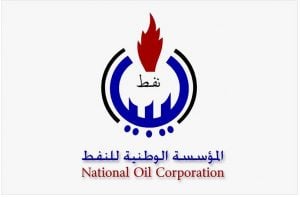By Sami Zaptia.

London, 1 July 2020:
Following intense and varied speculation yesterday about potential ‘‘wealth redistribution’’ deals of Libya’s oil revenues in return for the unblocking of oilfields, Libya’s state National Oil Corporation (NOC) today clarified the type of ongoing domestic and international negotiations attempting to bring an end to the oil blockade since January.
It estimates that the blockade has cost the Libyan state over US$ 6 billion in potential revenues as well as what it referred to as huge losses in infrastructure and oil reservoir damage.
It said that the current framework for the negotiations is ‘‘limited to the reopening of production’’ and that ‘‘all oil revenues will continue to be deposited in the same NOC accounts’’. It, therefore, discounted talk of a ‘‘food for oil’’ type of deal overseen by the international community or a regional redistribution of oil revenues directly to Libya’s three historical provinces (west, east and south).
“We categorically deny all rumours about the opening of new accounts and the distribution of these revenues to 3 regions and percentages of that distribution, and all those rumours come from people who are not involved in the negotiations and reflect their personal views only, and the National Oil Corporation is committed to Libyan laws and procedures,” said Mustafa Sannlla . We are against anything that would undermine its unity and sovereignty and we will not be part of any action against it.”
The NOC, nevertheless, confirmed leaked reports and speculation that the oil revenues ‘‘will be retained for a specified period of time, during which two parallel (negotiating?) tracks will be launched. One of these ‘‘tracks’’ will be ‘‘for financial transparency, equal opportunities and social justice among all Libyans’’.
The NOC statement was thin on details which will only generate intense speculation and frustration that the general public is not being consulted or involved in such monumental decisions.
For example, it gave no further details about these tracks nor the type of equitable distribution of wealth that is being discussed. It also did not reveal how long it would ”retain” oil revenues for, before releasing them to the internationally recognized government in Tripoli.
Equally, in view of the fact that every agreement that has been reached by the contesting Libyans since 2011 that could go wrong – has gone wrong – it did not explain if no agreement is reached during these tracks and during this unspecified period – what will happen.
The second track the NOC said ‘‘will be related to the restructuring of security arrangements to protect all oil installations to ensure that they are not considered military objectives and not used again for political bargaining’’. This implies an attempt to reform the Petroleum Facilities Guards (PFG) who are the state-paid security units charged with ‘‘protecting’’ Libya’s oil facilities. In reality, these local forces have used their local monopoly on use of force to coerce the state for various local grievances and demands.
The NOC reminded that the total potential sales losses since the 2011 revolution that toppled the Qaddafi regime have to date have exceeded US$ 231 billion. It said this has benefited other producing countries who have been able to take advantage of Libya’s lack of production/export by taking its market share in addition to the cost of destruction of infrastructure and oil reservoirs.
The NOC confirmed the continuation of the situation of force majeure at all the eastern crescent ports until the PFG allow production and exports to resume.
https://www.libyaherald.com/2020/06/30/weeks-of-domestic-and-international-ongoing-negotiations-to-lift-oil-blockade-leaks-of-potential-libya-oil-revenue-distribution-agreement/









